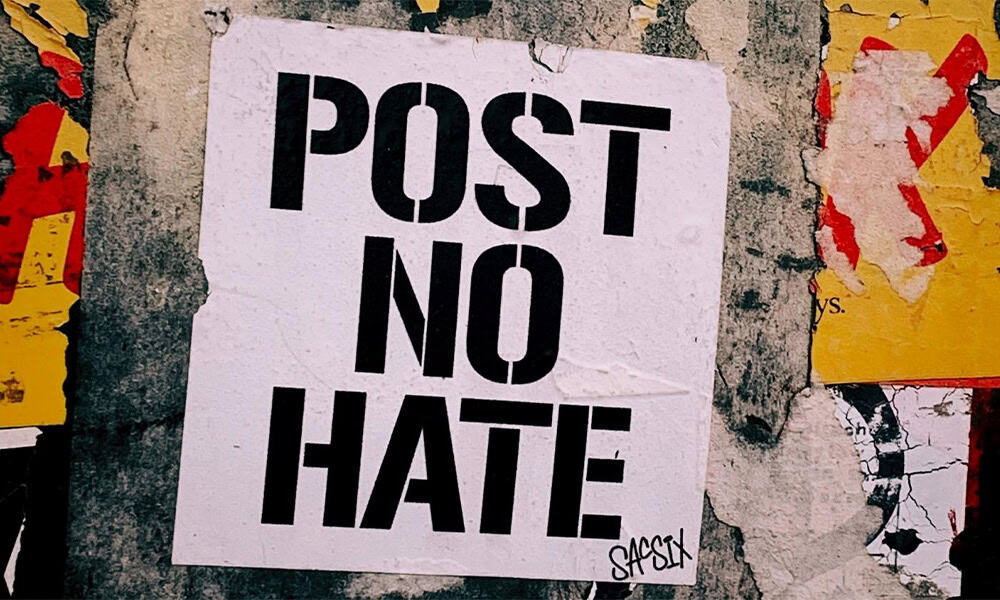A new United Nations report released yesterday shows hate speech and discrimination on social media in Costa Rica hit a record 2.1 million messages this year. That’s up 16% from 2024 and a staggering 400% jump since 2021. The findings, from the 2025 Report on Hate Speech and Discrimination, point to serious risks for the country’s democracy, human rights, and social bonds if these trends continue unchecked.
The report, put together by the UN in Costa Rica with COES Comunicaciones, tracks posts on Facebook, X (formerly Twitter), Instagram, and Reddit using AI and social listening tools. Men post seven out of every ten of these, and the tone has grown more violent and targeted over time – up 43% in aggression this year alone.
Attacks focus heavily on politics, gender, and the LGBTIQ+ community. Over 535,000 messages target key institutions like the Legislative Assembly, Executive Branch, Judicial Branch, Supreme Electoral Tribunal, and Comptroller General. These aim to discredit and weaken democratic structures, which the UN says could lead to widespread distrust, more polarization, and stalled public debate.
Allegra Baiocchi, the UN Resident Coordinator in Costa Rica, put it plainly: “If we destroy institutional credibility, we open the door to disinformation and polarization. Systematic hate spread through social media can freeze dialogue, block key reforms, and turn public discussion into a battleground.”
On gender issues, the report counts 491,000 attacks that discredit women leaders, justify violence against them, or push back on calls for equality. Baiocchi added, “Costa Rica can’t afford to backslide on equality gains. Normalizing hate against women means normalizing injustice.” This silences important voices and slows progress toward fair participation in society.
Hate directed at the LGBTIQ+ population saw the sharpest rise – 344% in the past year, totaling 251,000 messages. Many rely on old stereotypes, tying sexual orientation or identity to ideas of “disease” or “indoctrination.” The number of people posting these has grown 31%, often tied to aggressive views of masculinity.
Not all news is bad. The report notes drops in some areas: xenophobic messages fell 16%, racist ones 23%, thanks to growing awareness and targeted efforts. Hate linked to religion, age differences, and disabilities also eased. Overall growth in hate speech has slowed compared to earlier years, a sign that actions can make a difference.
Baiocchi stressed the need for quick, shared steps from government, civil groups, schools, users, and tech companies. “Hate can be learned, but it can also be unlearned, contained, and made unacceptable,” she said. “We must act with speed, planning, and resolve.”
The UN offers clear ideas to fight back. They suggest tailored rules for handling political, gender-based, and LGBTIQ+ attacks, drawing from the UN’s Rabat Plan of Action. Tech platforms should regulate AI ethically to avoid boosting divisive content and use it instead to spot risks early.
Schools and universities need required classes on digital citizenship, stressing human rights and non-violent ways for men to express themselves. Partnerships with social media firms could promote safer content over harmful posts.
Costa Rica gets praise as a leader here. In 2024, it became the second country worldwide – and the first in Latin America and the Caribbean – to roll out a national strategy against hate speech. The UN sees this as a strong base, but says it’s time to turn plans into real changes to protect rights and keep society together.
This fifth edition of the report builds on past ones, like the 2024 findings that showed racist hate doubling and a 71% overall spike from 2021-2022. It uses advanced monitoring to give a full picture, marking Costa Rica as ahead in tracking and responding to online harm.
Without reversal, the UN warns, these patterns could erode trust, fuel real-world violence, and weaken the democratic values Costa Ricans hold dear. The call is out: everyone has a part in building a kinder online space.






